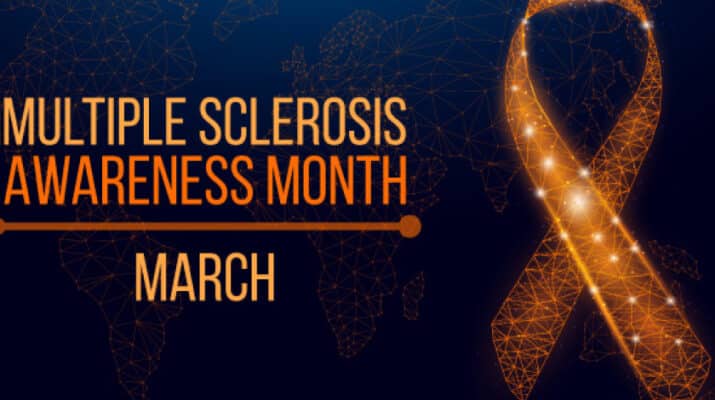By Ernst Lamothe Jr

Understanding multiple sclerosis is crucial for patients and their families for several reasons, ranging from common myths or misunderstandings to the weight it causes on the caretakers.
The condition occurs when the immune system attacks the brain and spinal cord.
More than 1.8 million people are diagnosed, according to the World Health Organization. Knowledge about the disease helps individuals make informed decisions about treatment options and lifestyle adjustments. It enables patients to actively participate in the management of symptoms and make choices that promote overall well-being.
It can cause many different symptoms and affect any age, but young people are more commonly affected.
“Women are more affected than men. MS is common in the Northeastern United States, affecting about one in 265 people,” said physician Corey McGraw, chief-clinical neuroimmunology division and director of the Comprehensive Multiple Sclerosis Center at Upstate University Hospital.
“One study suggested that Syracuse, New York, has the highest rate of MS in the United States. Early identification and treatment reduces the risk of having serious symptoms and future disability,” McGraw said in an interview with In Good Health.
McGraw talks about five aspects of MS.
1 — Common Symptoms
While symptoms vary widely, many of those seen by a majority of patients include fatigue, difficulty walking, numbness or tingling, muscle weakness, vision problems and issues with coordination and balance.
Individuals with MS may experience cognitive symptoms such as difficulty concentrating and memory problems. People of all ages can be affected, but it is more common in young adults and in females.
“Most people with MS experience episodes of neurological symptoms we call relapses. A typical relapse is a new symptom or a worsening symptom that develops over days and usually lasts days to weeks to months,” said McGraw. “We do not consider new symptoms to be relapses if they occur while you have an infection.”
Common symptoms of a relapse include blurry vision of one eye associated with pain in, around, or behind the eye, sometimes associated with change in color vision; double vision; dizziness or vertigo. In addition, drooping of the face, severe stabbing pain of one half of the face; weakness of the arms or legs and imbalanced walking.
2 — Misconceptions about MS
Common misconceptions about MS include the belief that it is always a progressive and debilitating condition. In reality, the course varies with some individuals experiencing mild symptoms and long periods of remission.
“People sometimes think that it is an untreatable disease that will lead to wheelchair use and is fatal,” said McGraw. “We have highly effective treatments today and most people may not experience severe disability if diagnosed and treated. MS is not a fatal disease.”
3 — Differences between MS and Alzheimer’s Disease
MS and Alzheimer’s disease are distinct conditions. MS is an autoimmune disorder that primarily affects the central nervous system, causing a range of symptoms such as fatigue, difficulty walking and sensory disturbances. Alzheimer’s disease, on the other hand, is a neurodegenerative disorder characterized by progressive cognitive decline, memory loss and changes in behavior.
“We do not know the exact causes of many neurological diseases, including MS and Alzheimer’s disease. MS is a disease of an overactive immune system that causes damage to the insulation around the nerve cells, which can lead to damage and loss of the cells,” said McGraw. “Alzheimer’s disease is a degenerative disease of the brain due to deposits of abnormal proteins. MS often affects younger people, while Alzheimer’s disease tends to affect older people. Both can cause trouble in memory, thinking, and daily functioning dementia.”
4 — Importance of Family Support
Family support remains vital for individuals with MS as it can significantly impact their quality of life. Emotional support, understanding and assistance with daily activities contribute to the overall well-being. Family members can also play a crucial role in helping individuals adhere to treatment plans, manage stress and cope with the challenges that may arise.
“It is critical for any person living with a chronic disease to have loved ones who can support them. It can be very troubling to be diagnosed with a new illness and family support is a key factor,” he added.
In addition, having a family member with MS may increase the likelihood of developing the condition, but it does not guarantee it. Environmental factors such as viral infections and geographical location also play a role in the development of the condition.
5 — Difficulty in Diagnosing
Diagnosing MS can be challenging because its symptoms are diverse and may overlap with other medical conditions. The disease also presents differently in each individual, making it challenging to establish a definitive diagnosis. Multiple tests, including imaging studies and spinal fluid analysis, may be required and a thorough evaluation by a neurologist is often necessary.
“The main barrier to an early diagnosis of MS may be recognizing that a person’s symptoms require additional evaluation,” said McGraw. “MS is common so it should be a consideration for anyone experiencing neurological symptoms. When in doubt, undergoing an evaluation by an experienced neurology team is important.”

